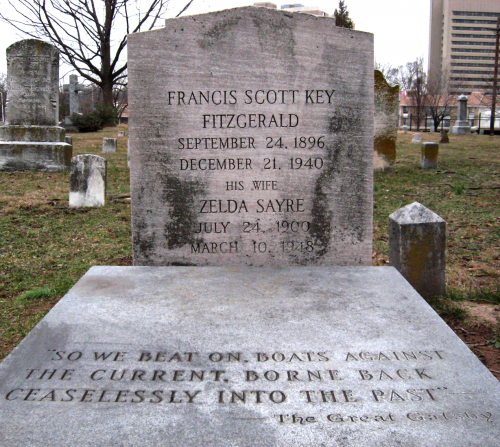Posted by Richard Rawlinson
“I like large parties, they’re so intimate. At small parties, there isn’t any privacy.” With this memorable quip in The Great Gatsby, F. Scott Fitzgerald captures the emptiness of Jordan Baker, one of the flappers who attend the parties at the mansion of Jay Gatsby.
A great thing about The Great Gatsby is that none of the characters are great. It’s about flawed individuals forming a flawed society. Gatsby made himself rich by dodgy means, and invented a persona to disguise his humble roots: the dapper bootlegger makes out he attended Oxford University and insists on calling everyone “old sport”. And his charade is part of an obsessive-compulsive ploy to win the heart of the socially-privileged Daisy Buchanan, who ultimately puts class status before love.
West Egg, the part of Long Island where our anti-hero lives, is for the nouvs, and East Egg, across the bay where Daisy lives, is for the toffs. It’s a commentary about East Coast snobbery which, in common with Europe, is where old money had traditionally kept new money in its place.
Gatsby, who hails from the wholesome Mid-West, is a dreamer but the American Dream is hollow in the east. Yet his romantic idealism is what makes him great in the eyes of the novel’s narrator, Nick Carraway. “‘They’re a rotten crowd,’ I shouted across the lawn. ‘You’re worth the whole damn bunch put together.’”
After Gatsby is shot dead in his pool, Nick sets to work trying to organise the lavish funeral he thinks his friend would have wanted. No-one shows up, except Gatsby’s servants and his father, who is touchingly proud of his son’s social mobility. Everyone else turns out to be uncaring: Gatsby was a drink ticket and a corpse can’t throw parties.
There are echoes with Fitzgerald’s life and death. An Irish Catholic, he felt like a pauper among the WASPs in the fast set at Ivy League university, Princeton. When he fell for his well-to-do wife-to-be, Zelda, he was spurred on to make his fortune in order to win her and keep her in the style to which she was accustomed. His first novel, This Side of Paradise, was a hit and the couple briefly became the decadent darlings of the Jazz Age.
But their lifestyle took its toll, Zelda ending up in asylums, and Scott becoming an alcoholic whose work was greeted with apathy. The Great Depression was looming and there was little appetite for the frivolity of the roaring 20s. Even The Great Gatsby was a flop.
With no book sales and estranged from Zelda, he tried his luck as a hack in Hollywood, where he took a gossip columnist mistress. It was there that he died in 1940 of a heart attack, aged 44, broke and feeling like a failure. Only a handful of people attended his funeral. His lifestyle also meant he was considered a non-practicing Catholic, so was denied the right to be buried on the family plot. He was buried by a Protestant minister—who allegedly didn’t know who he was—in the Rockville Union Cemetery in Maryland. Zelda joined him in his grave in 1948, but, in 1975, they were both moved to Rockville’s Catholic St Mary Cemetery.
Near the rail tracks and glum office blocks, it’s a modest setting for one of America’s greatest 20th century novelists. The only thing that distinguishes his grave is the placing by visitors of the occasional bottle of booze and coins, symbols of the two things he needed most before his death.
With Baz Luhrmann’s film being a box office hit 70 years after Fitzgerald’s death, the writer’s finest novel is at the top of the Amazon bestseller list. Had he and his creation, Gatsby, died in happier and more fulfilled circumstances, they would no doubt have appreciated more ceremonial fanfare. Manhattan’s St Patrick’s Cathedral perhaps, where mourners could have contemplated their transition from this life to the next in the intimacy of a crowd.



“So we beat on boats against the current, borne back ceaselessly into the past….” one of my favourite quotes. Much as I might admire Luhrmann, I don’t want to ‘see’ this book anywhere but in my imagination.
So agree with you on both points, Jed. The quote says it all, and Fitzgerald made the best pictures.
I had no idea of the parallels between them – I wonder if Gatsby became Fitzgerald’s self fulfilling prophecy. Life imitating art in the most literal sense.
I saw Luhrmann’s Gatsby in 3D on the big screen a few weeks ago. Like his Moulin Rouge, it often resembles an epic pop video and at times lacks depth. I’d hate to have seen it before reading the book when I formed my own mental images. But I enjoyed the spectacle having already read the book.